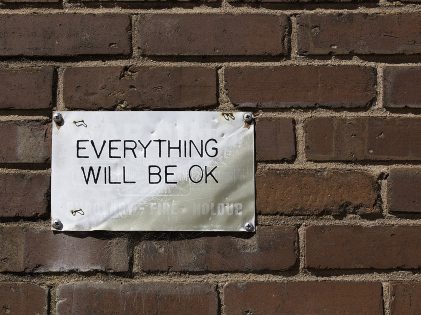
Here’s Why You Should Build Resilience

Resilience is the acquired ability to face difficult events in life and to recover from them. It’s all about how you face adversities in life. Falling and getting up back on your feet again despite hardships proves you are resilient enough. Facing setbacks on your path is quite common, but you can continue your journey with time, strength, and help from others.
It is like ascending a mountain without having a trail map with you. If you are resilient, you will somehow reach the top despite all the struggles. Being resilient is very important in life as having this ability helps you surpass all the ups and downs and surge forward. Learn more about resilience theory and why you should build resilience.
Resilience Theory
 One might face numerous challenges in life like losing their jobs, losing their loved ones, facing financial crisis, mental and physical torture, getting bullied, etc. But over the years, they learn to cope with this loss. The resilience theory focuses on the effects, adversities, loss, changes, and risks have on a person’s life.
One might face numerous challenges in life like losing their jobs, losing their loved ones, facing financial crisis, mental and physical torture, getting bullied, etc. But over the years, they learn to cope with this loss. The resilience theory focuses on the effects, adversities, loss, changes, and risks have on a person’s life.
Without experiencing stress, it is impossible to become resilient. Some people connect resilience with mental toughness, but that’s not the case. You can be resilient only when you work through all the suffering as well as emotional pain. Resilience is about adaptability, flexibility, and perseverance. You can define resilience by five principles – compassion, forgiveness, gratitude, acceptance, and meaning.
Top Factors
Being resilient is a complex procedure. You require both your inner strength and outer resources. There is no fixed formula to grow this ability. Different people have different characteristics. While you may develop anxiety or depression post a traumatic incident, another individual might not affect them. Building resilience is a process and requires a lot of factors to work.
There is no fixed set of instructions that will guide you through the adversities. The way you would tackle your trauma or crisis might differ from the way others would. There are a few protective factors that can help you improve your capabilities to cope and adapt, such as self-esteem, emotional regulation, coping skills, communication skills, realistic planning, and social support. The ability to be resilient builds up slowly as people come across various kinds of stressors regularly.
Is Resilience Important?

Resilience provides people with the emotional strength to fight adversity, hardships, and any traumatic events in life. People who have this ability utilize whatever resources they have and their skills and strength to sail above troubled waters and put any setback in the backburner. You might have seen or heard about people who lack that emotional strength to cope up with unwanted or emotionally disturbing incidents and bank upon coping strategies like isolation, avoidance, and self-medication too.
Some of them even commit suicide. All this is due to low resilience power. Resilient people also feel like you. They have their share of stress, defeats, setbacks, or emotionally disturbing moments. But they use their inner strength and utilize their existing support system to navigate past the problems bothering them. The ability to be resilient helps them accept a situation, adapt to it, and keep moving. Resilience is your core strength with which you can live the load called life.
7Cs of Resilience

Talking about the 7 Cs model, it revolves mainly around two basic points. One, young people either live up to the expectations that adults set on them or simply fail and need the adults for their unconditional love. Two, modeling resilience for younger people holds the key, rather than what people have to say.
According to the American Academy of Pediatrics, the 7Cs are – competence, confidence, connection, character, contribution, coping, and control. To build resilience, one needs to have the competence or the knowledge and ability to handle different situations differently and effectively. The person also needs confidence, as competence in practical situations leads to confidence. It is important to build a connection, which is having close ties with near and dear ones, gives a sense of security and makes one feel loved.
Resilience is of no value unless the person has good character, which is knowing what is right and what is wrong to make responsible decisions, have a feeling of self-worth, and contribute to society’s development. Based on these learnings, one needs to understand contribution. Contribution is about having a purpose and motivating oneself by contributing towards the betterment of one’s community. The sixth C is coping, which refers to how a person copes with stress helps tackle any setback and adversity. The last C is control, which is essential for understanding internal control helps in solving problems.
The interplay between your inner strength and outside resources is what the 7Cs of resilience depicts. Without resilience, one can be a victim of the circumstances, thereby taking the undesirable path.
More in Mental Health
-
`
The Physical Signs of Hunger and How Mindful Eating Makes a Difference
Hunger is one of the most basic yet essential signals our body uses to communicate its need for energy. However, many...
December 15, 2024 -
`
Why Did Chris Pratt Call Anna Faris Before Proposing to Katherine?
Chris Pratt, the beloved star of “Guardians of the Galaxy,” made headlines when he revealed that he called his ex-wife, Anna...
December 3, 2024 -
`
6 Proven Tips to Tackle Insurance Claim Denials Successfully
Claim denials are a common hurdle for healthcare providers and professionals, even for those who follow the necessary procedures to avoid...
December 1, 2024 -
`
5 ‘Bad’ Fitness TikTok Trends You Shouldn’t Follow
TikTok has become a haven for creative fitness advice. But not all trends are worth your time or your health. From...
November 23, 2024 -
`
Does Drinking Water Affect Adrenal Hormones?
Drinking water is often seen as a simple way to stay hydrated, but it has deeper effects on our body than...
November 14, 2024 -
`
Why We Feel the Loss of Celebrities So Deeply?
Celebrity grief might sound strange at first. After all, most of us have never met these famous figures in person, yet...
November 5, 2024 -
`
Are High Deductible Insurance Plans as Ideal as They Appear to Be?
High deductible insurance plans have been a hot topic for years, especially as healthcare costs continue to rise. For many Americans,...
October 31, 2024 -
`
How Training Load Data Can Transform Your Exercise Routine
Tracking progress during workouts is challenging. Simple metrics like mileage or time don’t show the whole picture. Understanding the overall effort...
October 26, 2024 -
`
Katy Perry’s Weight Loss Journey: Secret Diet Tips Revealed
Katy Perry’s weight loss journey has been making headlines, with the pop star shedding 20 pounds over the past few months....
October 16, 2024















You must be logged in to post a comment Login